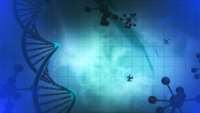Monash researchers isolate high-quality sperm using acoustic waves
Monash University researchers have combined acoustic waves and fluid dynamics to create a new approach for separating high-quality sperm in assisted reproduction - opening new windows for infertile couples to have a family of their own.
CRISPR CTX001 Clinical Trial: Promising Results in Sickle Cell Patients
Sickle cell anemia and beta-thalassemia are serious genetic blood disorders, caused by mutations in the gene that produces beta-globin, a component of hemoglobin.
Research dispels fears human stem cells contain cancer-causing mutations
Pioneering new research has made a pivotal breakthrough that dispel concerns that human stem cells could contain cancer-causing mutations.
Better education needed for patients' improved understanding of gene therapies
A new review of research bringing together patient, carer and public views of cell and gene therapies has highlighted a need for appropriate education to better inform people including how clinical trials work and the risks and benefits of various treatments.
Gene discovery could help prevent heart attacks
Researchers at the University of Virginia have shed light on how our genes affect our risk for coronary artery disease, the most common form of heart disease. In addition to identifying gene variants that influence risk, they found that one gene in particular appears to have a protective effect.
Animal study shows human brain cells repair damage in multiple sclerosis
A new study shows that when specific human brain cells are transplanted into animal models of multiple sclerosis and other white matter diseases, the cells repair damage and restore function. The study provides one of the final pieces of scientific evidence necessary to advance this treatment strategy to clinical trials.
CRISPR-edited CAR T cells enhance fight against blood cancers
Knocking out a protein known to stifle T cell activation on CAR T cells using the CRISPR/Cas9 technology enhanced the engineered T cells' ability to eliminate blood cancers, according to new preclinical data from researchers in the Perelman School of Medicine at the University of Pennsylvania and Penn's Abramson Cancer Center.
CAR T cell therapy effective as first-line treatment for high-risk large B-cell lymphoma
A study led by researchers at The University of Texas MD Anderson Cancer Center found that axi-cel, an autologous anti-CD19 chimeric antigen receptor (CAR) T cell therapy, is a safe and effective first-line therapy for patients with high-risk large B-cell lymphoma (LBCL), a group with an urgent need for new and effective treatments.










